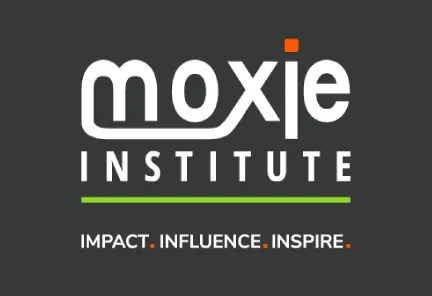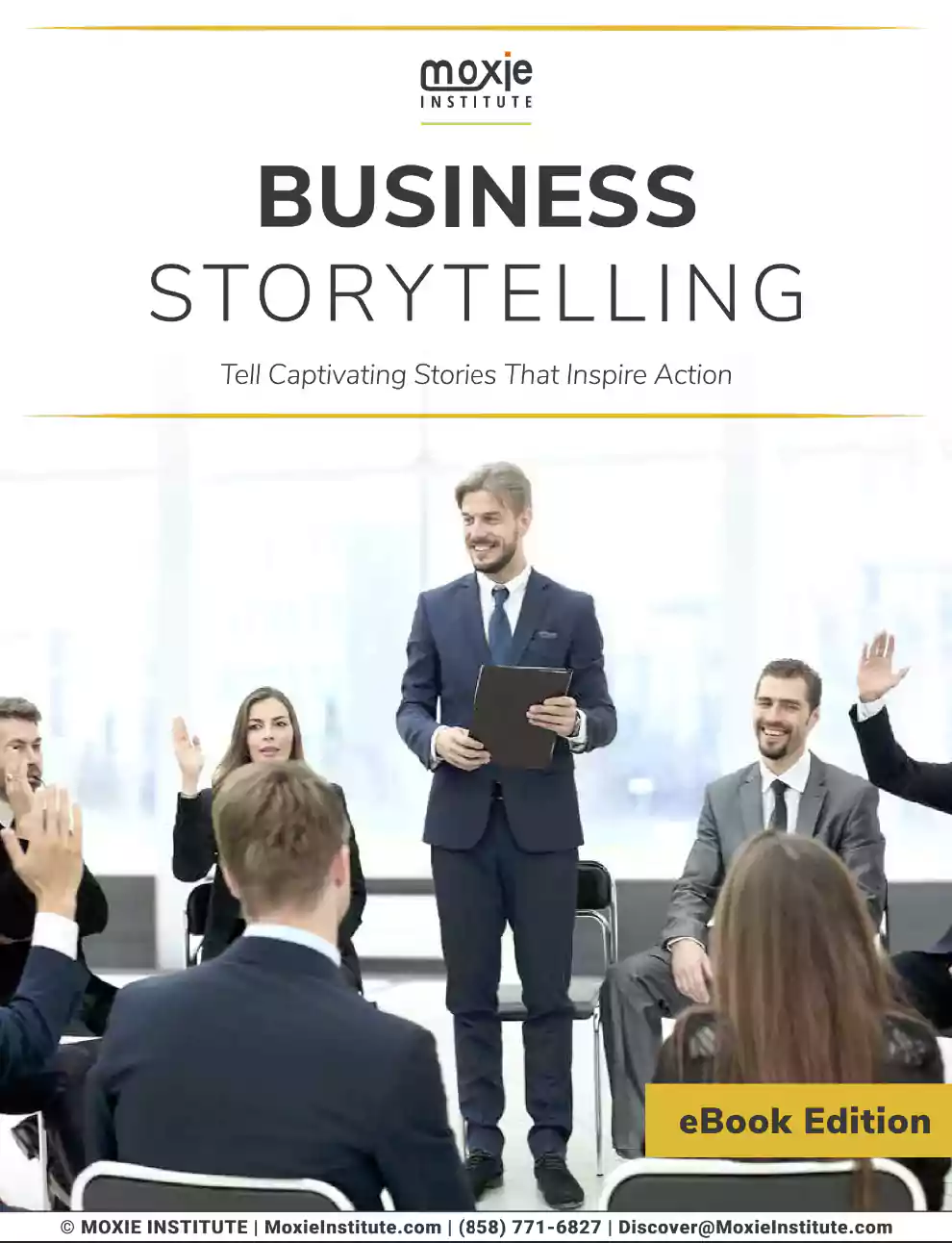How to Choose a Corporate Training Company
Professional development is critical to today’s workforce. Your future leaders have committed to growing and improving their skills and they are expecting your organization to provide them. If the desire for growth opportunities within the company is not met, they will instead look to new companies that will prioritize investing in their professional growth.
Most organizations choose to outsource their corporate training solutions. This allows key stakeholders to focus on day-to-day business operations, rather than running lengthy training sessions, making it an efficient and cost-effective choice. Additionally, hiring an outside company that specializes in corporate training programs provides more expertise, more perspective, and generally better organization and alignment.
Corporate training sessions run the gamut anywhere from a keynote lecture to in-depth, specialized programs and workshops that can last anywhere from days to weeks to years.
Some large organizations choose to develop their own instructional materials, hire trainers, and spend considerable time and energy indoctrinating the company culture. Though this specific and targeted customization perfectly suits teaching job-specific duties and company values, it is not the only way to customize corporate training.
Not every company can hire the staff to orchestrate these large-scale events and even the organizations who have training departments in place can still benefit from outside expertise and expert perspective for certain skills training, especially communication, leadership, and soft skills.
In November 2018, a report by LinkedIn ranked Oral Communication as the #1 Top Skills Shortage in the San Francisco Bay Area. Also found lacking, Business Management and Leadership notably ranked as numbers two and three.
Additionally, large US businesses lose an average of $47 billion every year in productivity due to lack of soft skills training and inefficient knowledge.
As the market grows and expands, our companies and employees must also evolve. This kind of growth not only benefits an employee’s personal career path, along with improving the company’s retention and job satisfaction ratings – it simultaneously boosts morale and productivity in an organization.
So how do you decide which of the many training companies to trust with your most valuable asset – the training and development of your future leaders?
First of all, there are many factors to consider as you identify the right vendor for your training:
Content of corporate training – What do you need to achieve?
What are the most urgent and long-reaching needs of your organization? For instance, is there a specific group being slowed down by conflict, gossip, or misunderstandings? This can be addressed by a communication skills training. Would you like your employees to step up and take more initiative? A corporate leadership training may be the answer.
The best training companies will listen to your needs, develop a structure for the content that will be delivered, and will be very clear about what you can expect to experience as far as the training itself and results. This can be called a development plan and when specialized for individual employees, a Personal Learning Journey.
Are you able to define specifically what an employee is currently doing versus what they need to be doing in order to determine their ideal Personal Learning Journey?
Can you identify which groups of people need training most urgently?
Will a generic training suffice or do you need something more specific? Though many training vendors offer one-size-fits-all types of training, like customer service mindset, administrative trainings, and the like, the very best value is found in customized training that fits your industry, culture, and people.
Is there an interest and ability to customize to your organization’s unique needs?
In customized programs, employees have the opportunity to learn based on a tailor-made training that is planned specifically with your organization’s objectives in mind. You can further customize the experience by sharing any pressing issues or specific team dynamics with your trainer – all the way to personalities in a certain group causing disharmony. You can address all of this with your trainer before your employees even know the date of the training.
The biggest advantage to a customized training is that you get to decide what is most important for your workforce to learn, while the core values, mission, and culture of your company are all considered and integrated.
While your employees are excited about professional development in a different atmosphere than the day-to-day, they will also be unified by the company’s mission.
A customized approach also ensures that the content is relevant to your company specifically.
Does the training support Adult Learning Theory?
What we know to be true about neuroscience and adult learning theory is that lasting, implementable learning only takes place if two things are happening in a training:
It is critical to include experiential activities that accommodate all of the senses and account for the different ways that people learn. For instance, you will find visual support as videos, slides and/or handouts for your visual learners. And all learners need to get up out of their seats and actually practice what they are learning with feedback in order for the information to be useful and transformational.
Though it may make your more reserved employees squirm, it’s also absolutely necessary to push learners out of their comfort zones. This actually sends the message to the brain to “take note” when perspective is shifted.
Another tenet found in powerful teaching program throughout the training industry is blended learning. This means that online platforms are used to customize a learner’s experience, but the learning takes place in a classroom setting. Blended learning combines the best of both words without weighing a learner down with tech-heavy pedagogy, keeping the training interactive and personalized.
Are there consistent checkpoints?
How can you be sure your employees are learning in order to gauge the success of the training? An experienced training company will have assessments included in the core content to evaluate the quality of an employee’s Personal Learning Journey.
Types of assessments that may be included are self-assessments (generally at the beginning and end to gauge an employee’s perceived learning,) quizzes, informal evaluation during interaction by the trainer, and capstone projects, to name a few.
Without these checkpoints throughout the duration of the training, it could be catastrophic to wait until the last day to find that an employee never understood. By then it’s often too late. This can result in Scrap Learning, or learning that is wasted by not being applied to the job itself. Not only is this costly, but it also wastes time and the energy of your employees, company productivity comes to a halt for nothing, the HR representatives who facilitated the training logistics scrambled for nothing, and even the time is wasted for the training company when they don’t get to call your training a success.
Be sure the training vendor you choose is incorporating consistent learning checkpoints in the form of assessments.
Are there learning reinforcements/follow-up?
Will there be learning reinforcements built into the content of the training? This serves to remind the participants of the most relevant concepts long after the in-person experience. This also helps to weave the learning into the fabric of the company’s culture, so learning remains memorable and improves the chances of purposeful human transformation.
Determine the quality and fit of coaches.
As there are many different types of corporate cultures, an ideal training program will have more than one trainer for you to choose from. They will be happy to gather information about your company’s culture, needs, and the personalities of your employees in order to try to appropriately match you with the right coach for your team. They will also share specific strengths, helping you best match the trainer for your unique needs.
Have you ever experienced a trainer who you didn’t resonate with? My bet is you remember their poor performance over the topic. Wasted learning spend, right? The right trainer can be just as important as choosing the right training program to accomplish learning objectives.
Always request references and feedback from prior participants on a company’s trainers.
It’s also a great idea to keep a record of your relationship with a trainer after the training, your impression of them, and performance feedback over time. This will help you to hone exactly what works well for your company and, especially, who. It’s easy to forget from year to year who you worked with, but coming back to a coach who your employees have already connected with and established trust with will save time and energy.
Timing for the training – What is your ideal cadence?
The duration of the training and time that your company can allocate is an important factor.
Yes, it’s always a difficult choice when and for how long you are able to pause workflow, while simultaneously paying employees and managing operations.
Many companies solve for this by scheduling training for different groups at different times, especially for sales and customer service representatives. Obviously, a call center can’t just turn off the phones for a week.
Any consumer who chooses to set up automatic payments as a system for their online banking knows that the time investment on the front end saves valuable hours in every single month that follows. Similarly, taking the time to set up a training and teaching the mindset you would like adopted by your employees will save time in the long run by heading off conflict, while curbing the necessity of lengthy explanations and interventions by management.
Do keep in mind that top trainers can be popular and booked out in advance, so be sure to schedule as early as possible.
Delivery and Deliverables
It is also helpful to trust the process. If you have researched the training company and they are well-established, have excellent references, and a strong record of success, then it is generally safe for you to trust the advice that is given. For instance, if the training you need is quoted as taking four days, don’t try to shorten it into one day.
Support Staff and Customer Service – What commitment has been demonstrated?
Does the company you are considering have a strong customer service focus? Did they get back to you right away and keep you in the loop on the status of your request for training?
It is important to be sure you are supported by several layers of customer service and account management. Choose a company committed to doing whatever it takes to deliver your training.
The Discovery Call – Questions to ask a potential corporate training vendor:
- Is the content customized or is it the same for each organization?
- What is the level of understanding of our industry and day-to-day operations?
- Have you worked with groups in similar situations to ours?
- Will the content be presented in a way that appeals to different types of learners?
- How do you measure success/progress?
- Will assessments be administered consistently to evaluate learning?
- Is there any post-training reinforcement? Are learning reinforcements included in the content?
- Can you share references/testimonials with us?
- Will support be provided after the fact and/or will materials be included?
- Is the content up-to-date and updated regularly?
- Is there a guarantee? For instance, what happens if the scheduled trainer is ill?
- Are there any additional fees that may not be included in this initial estimate?
- Who is responsible for supplying and/or copying course handouts?
Questions a Training Provider May Ask You
- What are your specific goals for the training?
- What challenges are your people dealing with?
- Why is the training a priority right now?
- Who are the stakeholders and who is involved in the decision process?
- Who is the audience? How many learners? What positions, roles and responsibilities, and seniority?
- Do you have specific dates in mind?
- What would success look like – what skills would you like your employees to learn? How will their day-to-day process need to change to make your organization function more optimally?
- Have you tried anything in this area already? If yes, what has worked? What has failed?
- What is the size and layout of the space where the training will take place? (Many trainers will have specific preferences on how they would like a space to be set up.)
- Will this training be onsite for the company? Specific location?
- Do you have a budget set aside for this training?
After a Training
It’s important to take stock and review a training after it’s been completed. Was it well organized? Did it meet the objective that you requested? And if not, did you state your needs clearly or was the objective unclear? (But also note that a good training company will be able to drill deeper until an objective is crystal clear.) What about the attitude of the staff? Were they willing to learn or resisting changes? Regardless, it’s important to share the results with your trainer so that they can follow up and ensure that you are satisfied to the best of the training company’s ability.
Whatever you choose for your training, you can be proud that you are making an intelligent and lasting choice to invest in the future and long-term growth of your organization by scheduling a professional skills training for your employees and leaders.
Fia and Gregg Fasbinder
CEO and President
www.MoxieInstitute.com
hello@moxieinstitute.com
(858) 771-6827









